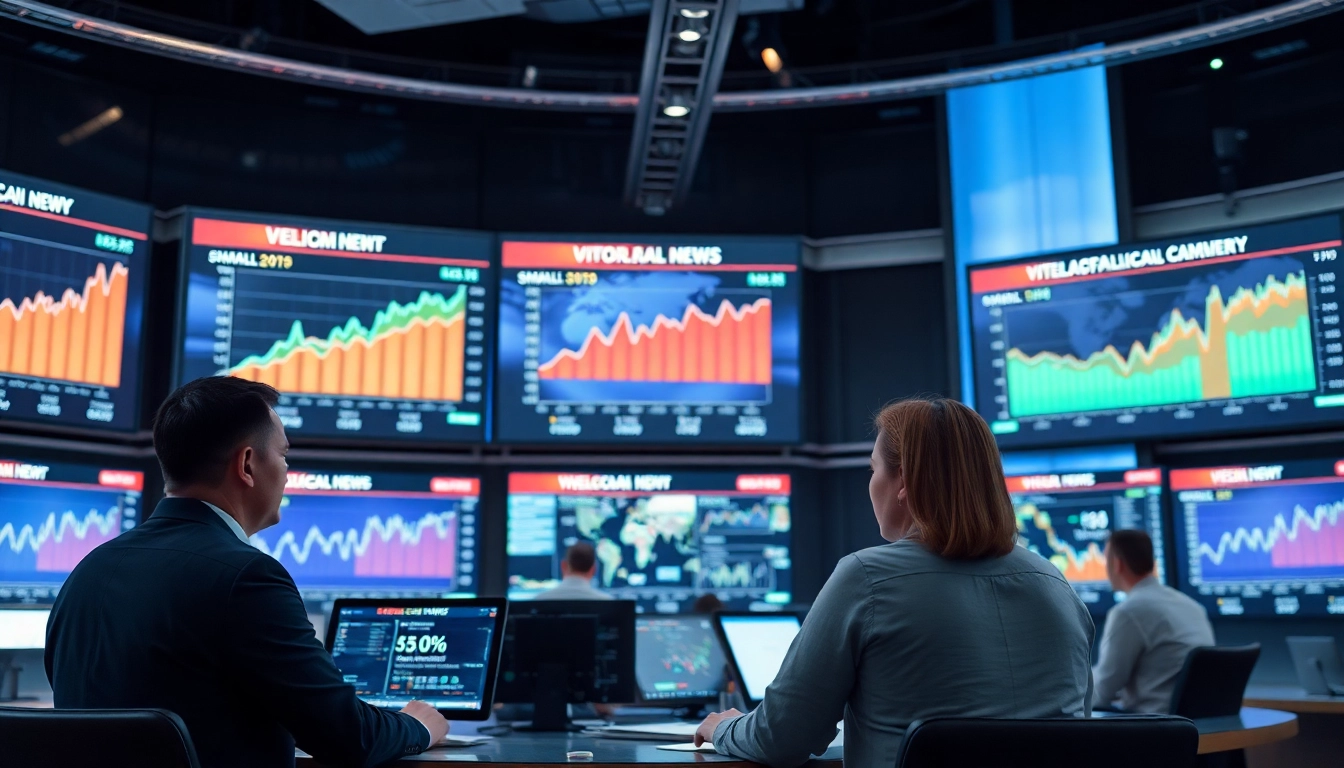Understanding the Current Political News Landscape
Key Political Events of the Week
The political arena is perpetually dynamic, with significant events shaping both national and international narratives. Recent weeks have witnessed landmark developments such as the passage of crucial legislation, major policy shifts, and high-stakes diplomatic engagements. For instance, the confirmation of new government officials, landmark reforms, or pivotal elections often dominate headlines, impacting public sentiment and international relations. Moreover, emerging crises—whether economic, environmental, or security-related—are increasingly intertwined with political discourse, influencing upcoming electoral cycles and policymaking agendas.
One notable example is the ongoing debates surrounding infrastructure investments and economic stimulus packages that are crucial for national development. Governments worldwide are responding to the twin pressures of economic recovery and social stability, often through comprehensive policy initiatives. Understanding these key events requires a nuanced appreciation of the underlying political strategies, stakeholder interests, and the broader geopolitical context. Accessing reliable and timely political news sources ensures citizens and analysts remain well-informed, enabling proactive engagement and analysis.
Global vs. Domestic Political Dynamics
While local and national politics focus on immediate governance issues, global political dynamics add layers of complexity. International relations, trade negotiations, and diplomatic alliances influence domestic policies significantly. For example, trade agreements negotiated in international forums can determine economic stability, national security, and technological collaborations within various countries. Conversely, domestic political developments, such as leadership changes or legislative reforms, can ripple across borders, affecting foreign relations.
Understanding these intertwined layers requires analysts to track both spheres simultaneously. The rise of digital platforms and social media has amplified the speed at which political information flows, enabling citizens to follow global and domestic events almost in real time. This interconnectedness underscores the importance of verified news outlets that can distill complex international developments into intelligible insights for the general populace and policymakers alike.
Influence of Political News on Public Opinion
Political news profoundly shapes public opinion, molding perceptions on governance, policy issues, and societal values. Media coverage can elevate particular narratives, influence voting behavior, and generate social movements. For instance, investigative journalism revealing corruption or exposing systemic flaws often catalyzes civic activism and demands for reform.
In recent times, social media algorithms and echo chambers have sometimes polarized opinions, illustrating the importance of seeking balanced and fact-based news sources. Political campaigns increasingly leverage analytics from news consumption patterns to target messaging effectively. Hence, understanding how media influences public opinion empowers citizens to critically evaluate information, fostering a more informed and engaged electorate.
Sources and Strategies for Reliable Political News
Top Trusted News Outlets Covering Political News
Credibility in political journalism is paramount. Leading outlets such as Political News platforms, POLITICO, CNN Politics, and BBC News provide comprehensive coverage grounded in fact-checking and professional journalism standards. These sources employ investigative techniques, expert analysis, and cross-verification with multiple data points to deliver trustworthy insights. When consuming political news, it’s essential to diversify sources to gain a holistic view and avoid biases inherent to single outlets.
Additionally, non-partisan fact-checking organizations, such as FactCheck.org or Snopes, serve as invaluable resources for verifying claims circulating in the political sphere. Investing time in consulting multiple reputable outlets enhances understanding and helps discern factual content from misinformation or propaganda.
How to Verify Political News Accuracy
Verifying the accuracy of political news involves several deliberate steps. First, assess the source’s reputation, history, and transparency about their journalistic process. Cross-reference the news with other credible outlets to identify consistencies. Pay attention to dates, authorship, and supporting evidence—original documents, official statements, or data. Question sensational headlines that evoke strong emotional responses, as these often relate to misinformation campaigns.
Utilize fact-checking tools and databases, especially during rapidly evolving stories. Critical evaluation also involves understanding the broader context and being cautious of echo chambers that reinforce pre-existing biases. Consistently applying these best practices enhances informed decision-making and mitigates the influence of misinformation.
Impact of Political News on Society and Economy
Political Developments Affecting Markets
Market stability and growth are closely linked to political events. Policy decisions such as tax reforms, trade tariffs, or regulatory changes can sway investor confidence and influence stock markets. For example, political turmoil or legislative gridlocks tend to introduce volatility, as investors react to perceived risks. Conversely, transparent policy initiatives aligned with economic growth can foster investor trust and stimulate market rallies.
Analyzing political news for economic impact involves monitoring policy announcements, government stability, and diplomatic relations. Investors and business leaders often rely on timely political analysis to hedge risks and identify opportunities, emphasizing the importance of credible political news sources and economic forecasts.
Public Policy Changes Driven by Political News
Policy shifts are often galvanized by political narratives shaped in the media. Healthcare reforms, environmental legislation, and social welfare programs are some areas influenced heavily by prevailing political discourse. Changes in leadership or party ideologies invariably lead to new policy priorities, affecting stakeholders across sectors.
Understanding these dynamics allows citizens and organizations to prepare for regulatory changes, adapt strategies, and participate in civic advocacy. Political news acts as both a mirror and a catalyst, reflecting societal priorities and shaping future policy directions.
Social Movements and Political Awareness
Media coverage has historically energized social movements—highlighting injustices, mobilizing supporters, and driving policy dialogues. Campaigns such as climate activism or social justice initiatives have gained momentum through sustained political news exposure.
Furthermore, increased political awareness fosters civic participation, enabling communities to advocate for policy changes or hold leaders accountable. Digital media accelerates this process, creating a vibrant ecosystem where societal issues can quickly become national or global priorities.
Analyzing Political News for Personal and Professional Insights
Using Political News Data for Business Decisions
In the corporate world, political developments can impact strategic planning, international commerce, and risk management. Companies monitor political trends to anticipate regulatory changes, geopolitical risks, or economic shifts. For example, a sudden policy change regarding tariffs or data privacy can influence supply chains or expansion plans.
Data-driven analysis of political news supports decision-making, helping organizations align their operations with emerging realities. Incorporating political risk assessments into strategic frameworks enhances resilience and competitiveness in volatile environments.
Understanding Political Sentiments and Predictions
Sentiment analysis tools leverage artificial intelligence to assess the tone and public mood surrounding political narratives. These insights inform expectations about election outcomes, policy acceptance, or social unrest. By combining qualitative analysis with quantitative data, stakeholders can better prepare for future scenarios.
Forecasting models, based on polling, social media trends, and historical data, enable policymakers and businesses to adapt proactively. Staying informed through reliable political news sources ensures ongoing intelligence and strategic agility.
Tools for Monitoring Political Trends Effectively
Advanced tools such as real-time news aggregators, social media analytics, and AI-based monitoring platforms enable comprehensive oversight of political developments. Setting up tailored alerts, subscribing to expert analysis, and participating in civic tech initiatives foster continuous engagement.
Investing in these technologies not only improves awareness but also helps decode complex political landscapes, facilitating informed responses in both personal and professional spheres.
Future Outlook and Navigating Political News Complexity
Emerging Political Contenders and Policies
The future of political landscapes hinges on emerging leaders, shifting ideologies, and policy priorities. Trends such as increased focus on climate change, technological regulation, and geopolitical realignments will redefine narratives. Emerging political figures may challenge existing paradigms, emphasizing the need for continual monitoring and analysis.
Understanding these advancements allows stakeholders to forecast impacts and participate actively in shaping policy directions aligned with societal goals.
Adapting to Rapid Changes in Political News Cycles
The velocity of information flow has dramatically increased, demanding agility from consumers of political news. Platforms like social media, live updates, and instant alerts create a constantly evolving environment. Developing a critical eye, prioritizing credible sources, and avoiding information overload are essential skills for staying well-informed.
Implementing structured news consumption routines and leveraging technological tools helps manage complexity and ensures accurate, timely insights.
Strategies for Staying Informed and Engaged
Active civic engagement requires strategic information management. Subscribing to certified news outlets, participating in civic tech platforms, and engaging with community discussions foster a deeper understanding of political issues. Critical thinking, fact-checking, and balanced perspectives cultivate informed opinions and responsible participation.
In an era of rapid information flow, cultivating media literacy and vigilance is vital for meaningful engagement and societal progress.





